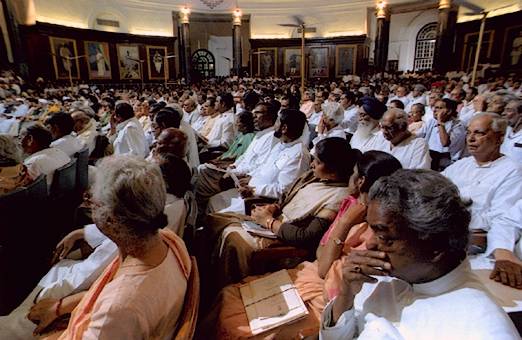05.08.2010

The Bombay High Court on Tuesday dismissed a petition seeking the reservation of an additional three parliamentary and 18 assembly seats in the state for the Scheduled Caste, (SC) to accommodate the additional 6 per cent Neo-Buddhist population in the reserved category. Five out of the 48 parliamentary seats, and 29 out of 288 assembly seats in the state are presently reserved for the SC category candidates.
Swapnil Bhingardave (40) had sought for an increase in eight parliamentary seats and 47 assembly seats – in proportion to the increased SC population in the state, following the inclusion of Neo-Buddhists in reserved category.
Bhingardave, MD of Khandoba Prasanna Sugar Factory at Karad, in his petition, contended that 6.03 per cent Neo-Buddhists from the state were systematically denied their share in proportionate representation to the Parliament and State Assembly.
Neo-Buddhists, who came into existence in 1956 after conversions under the leadership of Dr B R Ambedkar, were included in the SC category by the Union Government in 1990.
Relying on this inclusion, Bhingardave had sought an increase in the reserved seats for SCs in proportion to the Neo-Buddhist population in the state on the basis of 2001 census figures.
A division bench of Justice D. K. Deshmukh and Justice R. P. Sondur-Baldota on Tuesday questioned the locus of the petitioner, who is not a Neo-Buddhist. His counsel Pradeep Havnur said the petitioner’s political stakes were adversely affected because of not increasing seats reserved for SCs in proportion to the Neo-Buddhist population.
The reply failed to impress the judges, who also took into consideration the fact that nearly 10 years have lapsed after the 2001 census.
Source: The Hindustan Times




